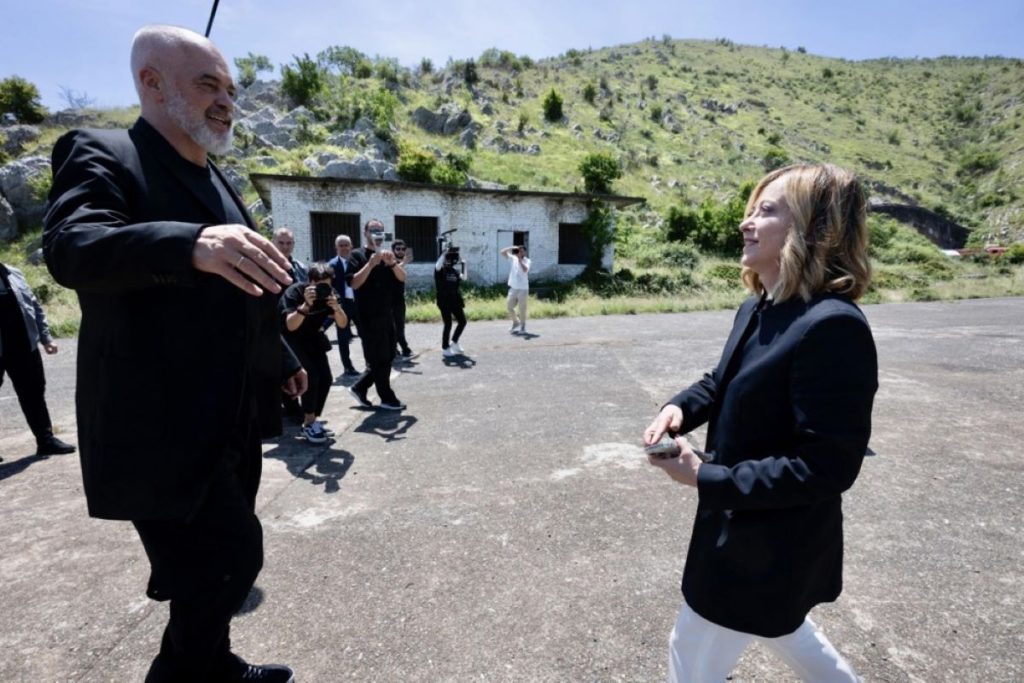
The migrant camps planned in Lezhë have caused a stir not only in Albania but also across Italy, raising questions about what lies ahead for Prime Minister Giorgia Meloni. Drones have been deployed by opponents to capture aerial footage of the areas, intensifying concerns about possible protests both in Albania and Italy. These mobilizations threaten to block the sole route from Shëngjin, where migrants are expected to arrive, to the Gjadër center.
Pro-migrant organizations and judicial figures have already started mobilizing to disrupt the government’s plan for Albania. Judge Silvia Albano, from Rome’s Immigration Court, has voiced concerns over the Italy-Albania Protocol, questioning the legality of detaining migrants in Albania. Judicial resistance, along with activists monitoring the situation, is setting the stage for a legal and political “guerrilla” effort to halt administrative detentions.
The plan, originally scheduled to begin in June, has faced numerous delays. The first group of migrants is now expected to be transferred to Albania by the end of September. With an estimated budget of €670 million over five years, critics claim the true cost could soar to €850 million or more. Meloni, however, has defended the project as a vital investment, accounting for only 7.5% of Italy’s annual migrant-related expenses.
Around 500 new jobs are expected to be created, and within 28 days, fast-track procedures will determine whether migrants qualify for asylum or will be repatriated. Though not a solution to the broader migration crisis, Meloni has positioned the initiative as a preventive model that other European nations may adopt. Already, 15 out of 27 EU countries have supported the Italian plan, appealing to the European Commission to consider it as a model for future migration management.
However, delays have been compounded by complex EU regulations, particularly regarding surveillance and the selection of migrants in international waters. Female migrants, minors, and those with serious health conditions will not be transferred to Albania, while those caught in international waters will first be held on private “floating centers” before being relocated to Albania.
This project primarily targets illegal migrants from Tunisia, Bangladesh, and Egypt—the top three nationalities arriving in Italy over the past decade. Yet, the legal challenges ahead are significant, with Albano and other judicial figures questioning the plan’s compliance with EU law. Albano has even suggested that the transfer of migrants to Albania might constitute collective refoulement, a serious legal violation.
International NGOs, such as Doctors Without Borders and Mission Lifeline, have denounced the agreement as an assault on the right to asylum, while others, like Sea Watch and SOS Humanity, are preparing for a battle against the plan. Protests are expected to escalate as the first transfers take place, with both Italian and Albanian activists ready to challenge this controversial project.
